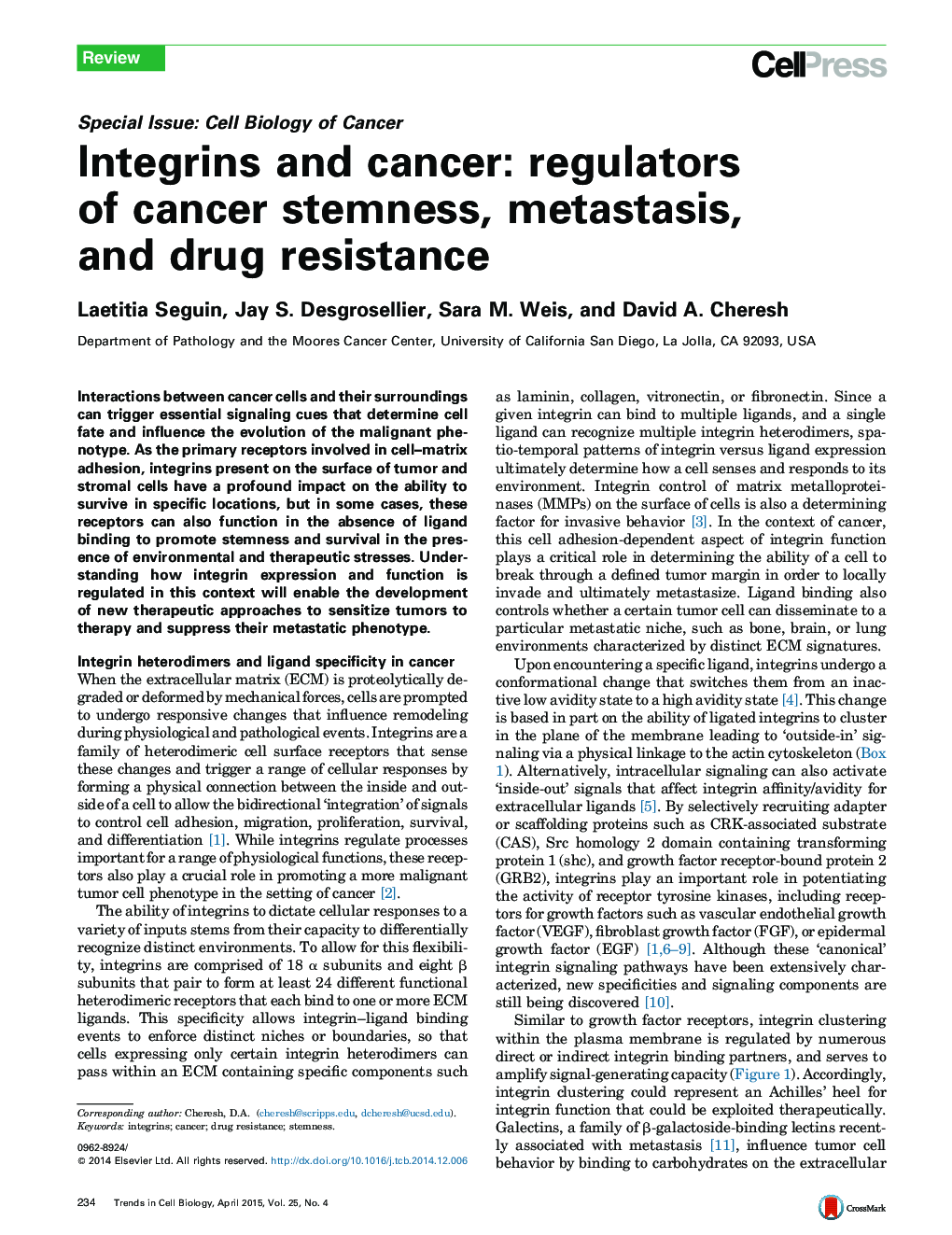| Article ID | Journal | Published Year | Pages | File Type |
|---|---|---|---|---|
| 2204357 | Trends in Cell Biology | 2015 | 7 Pages |
•Integrins contribute to cancer progression via adhesion-dependent and -independent pathways.•Specific integrins not only represent stem cell markers, but also dictate stem cell behavior.•Integrins drive therapeutic resistance through canonical and non-canonical mechanisms.•Integrin expression contributes to multiple steps of the metastatic cascade.
Interactions between cancer cells and their surroundings can trigger essential signaling cues that determine cell fate and influence the evolution of the malignant phenotype. As the primary receptors involved in cell–matrix adhesion, integrins present on the surface of tumor and stromal cells have a profound impact on the ability to survive in specific locations, but in some cases, these receptors can also function in the absence of ligand binding to promote stemness and survival in the presence of environmental and therapeutic stresses. Understanding how integrin expression and function is regulated in this context will enable the development of new therapeutic approaches to sensitize tumors to therapy and suppress their metastatic phenotype.
